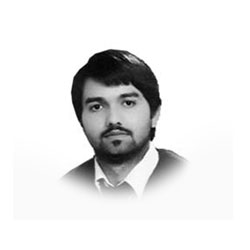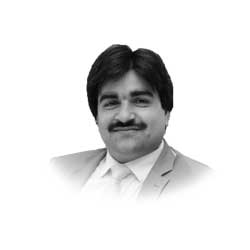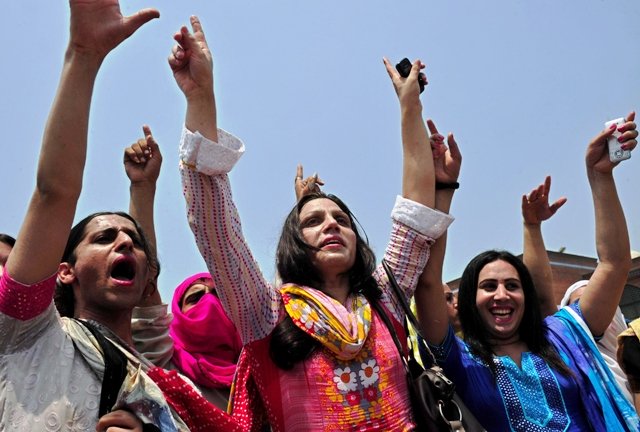By: Syed Shahzaib Haider
I am writing this article with a heavy heart to help you understand one of the saddest and most distressing realities of our very beloved and honorable Muslim community living in India. Let me explain. I’m not talking of the rich, influential, or well-educated; I’m specifically referring to poor and, often, illiterate Muslims. They’re the vast majority. So, what does it feel like to be one of them? In the last few months again, the RSS mindset people are on the go, to another time ensure massacre and ethnic cleansing of Muslims. Demolishing their homes, often before their presence, guilt was established and, at times, without prior notice. Their minor children have been detained for hearing Pakistani songs, while men who claim to be Hindu priests have publicly threatened to rape their women.
I am not easily impressed but some of the writings are truly accurate. Recently I saw a book compelling me to accept what the writer name Ghazala Wahab’ in her book “Born a Muslim” is saying in it. The book is at times autobiographical, frequently analytical, and full of convincing research and illuminating history, it tells you the misery with the Muslims in India.
While reading this book something I have found was very attention-grabbing as a twist, when she was addressing fellow Muslims and telling them how they need to look beyond the mullahs and embrace modernity. But as she became aware of just how vulnerable Muslims in India are and how “extremely fearful”, she changed her views when she comes to know Muslims are struggling to stay alive and for that how they are forced to change their thinking, their manner of living, their approach to religion?” it’s a predicament for Muslim. Her views changed when she realized people “perceive two separate identities” in India as Muslim and Indian. It led her to think that it’s not possible in India to be a poor underprivileged Muslim and to have freedom to practice religion if you’re from the described community.
Wahab says that there are external and internal forces that hold “Muslims in a claw grip”. The external is “the sociopolitical discrimination they face at the hands of both lawmaking and law-enforcing authorities”. It often amounts to physical and mental violence. It denies them equal opportunity, even justice. “This forces Muslims to seek security in their own numbers, and they withdraw into ghettoes on the periphery of the mainstream, thereby limiting their choices in terms of accommodation, education and profession”.
The internal force is “the vicious cycle perpetuated by illiteracy, poverty and the disproportionate influence of mullahs”. This keeps “a large number undereducated and, therefore, unemployable”. It’s also “prevented the emergence of a progressive, secular Muslim leadership”.
Nearly none in the Indian parliament accept of Muslim members feels the pain of Muslims. Which is why Muslims “carry a double burden of being labelled as ‘anti-national’ and as being ‘appeased’ at the same time”.
“Young Muslim men are frequently picked up and held without charges indefinitely under some anti-terrorist law or another.” Research shows “Muslim boys now have considerably worse upward mobility than both scheduled castes and scheduled tribes”. Many of the Indian Muslim mothers want their sons to go abroad? “A poor Muslim boy in India will either be a wastrel or viewed as a rioter and miserably be killed by the police”.
The situation is getting worse with every passing day, those who are too poor to escape pretend to be Hindu. They change their names to give themselves another identity. “If someone have a Hindu name, no one will even bother check what he does even if he is a rapist a killer or a drug dealer etc. I don’t know if this is true of a few or many, but does that matter? Even if it’s one, it’s a tragedy that shames on the so called world’s largest democracy. Yet till I read Wahab’s book, I wasn’t aware of this.
There’s also another dimension — you could call it the flipside — and Wahab is equally forthright in writing of it. Moderate Muslims are not just caught between two worlds but torn apart. “On the one hand, conservative or devout Muslims disparage them; on the other hand, Hindus suspect them”. So what choice do they have but to “keep their heads down and hope they won’t be called an anti-national?
Yet these are the people many criticize for their silence. The truth is it’s not easy to be a Muslim in India. Both the world outside and your own community torment you.
Sadly we in Pakistan cannot do anything significant for our brothers and sisters across the border, we are only sitting at home to watch news every other day about it and say gosh! It’s bad. But is that enough as a Muslim can we not even raise our voices through sit-ins and record our disapproval of this atrocity on international stage. Muslim communities across the world if arise for even a day to tell the whole world that this is what’s happening in India would probably be enough for the rulers of the so called world’s largest democracy to understand that Muslims are also similarly loyal to their country and they have equal rights in India too.
The writer is the Director of the editorial board at ‘The Dayspring’. He can be reached at [email protected]








